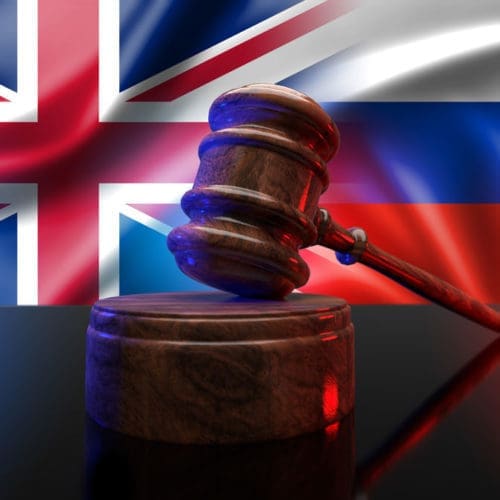Sanctions update: EU and UK price caps to hit insurers and other sectors
February 2023What has happened?
On 5 February 2023, the EU and UK price cap for refined petroleum products came into effect. The European Union (EU) and the United Kingdom (UK) have both implemented measures aimed at limiting the revenues received by Russia from its sales of oil and oil products.
For both the UK and EU, the price caps are set at the following levels:
- $100 per barrel on products that trade at a premium to crude (with effect from 5 February) and
- $45 per barrel for products that trade at a discount, such as fuel oil and naphtha (with effect from 5 February).
- $60 per barrel for petroleum oils and oils obtained from bituminous minerals, crude (with effect from 5 December)
These measures implement agreement previously reached between the G7 countries, Australia and the European Union. The agreed prices will be kept under review.
As there are already import bans in place on Russian oil for the UK and EU markets, the practical effect will be to restrict Western insurance, shipping, and other companies from financing, insuring, trading, brokering, or carrying cargoes of Russian crude and oil products from the EU to third countries unless they are bought at or below the set price caps.
EU ban – level of cap and scope of prohibitions
The price cap is based on Regulation 833/2014, Article 3n, which prohibits technical assistance, brokering services, financing, or financial assistance related to the trading, brokering, or transportation of crude oil or petroleum products originating in or exported from Russia to third countries, with certain exceptions. Article 3n(6)(a)) allows European operators to support the transport of Russian oil to third countries, as long as its price remains below the agreed price cap (set out in Annex XXVIII of EU Regulation 833/2014).
As at last week, the EU Council of Ministers had yet to agree the cap for Russian oil products (Press Release: here). A number of Eastern European member states had reportedly pushed for tougher caps than those settled at G7 level. The Ministers reached agreement however late on 3 February.
UK – Guidance and General Licences
In the UK, the crude oil price cap was implemented on December 5th, 2022, and the ban on UK ships and services involved in the maritime transportation of Russian oil also came into effect on that date. The oil price caps for refined products took effect on February 5th, 2023, with the intention of extending the services ban to Russian oil products.
To ensure that market participants could transition to these new sanctions, the UK’s Office of Financial Sanctions Implementation (OFSI) (the body responsible for the enforcement of the price cap) has introduced a wind-down period for refined oil products loaded onto vessels before 5:01 am GMT on February 5th and offloaded before 5:01 am GMT on April 1st, which would not be subject to the oil price cap for refined products.
The relevant legislative provisions are Regulations 46Z9A-4679E of the Russia (Sanctions) (EU Exit) Regulations 2019 (as amended). Firms must comply with the maritime services ban by ensuring they are not involved in transactions related to the shipping of Russian oil that breaches the cap price. To comply with the price cap, the industry must adhere to the relevant part of a 3-tier attestation model and the recordkeeping and reporting requirements listed in the updated guidance and General Licences available on the OFSI website.
The attestation process is designed to apply different requirements to different actors in the oil supply chain, depending on whether they routinely know the price paid in their ordinary course of business and how often they transact. Those closest to the price information and transacting regularly (such as oil traders and brokers) have greater requirements under the attestation system than those further from the price information or transacting annually (such as maritime insurers).
Attestation requirements are explained in new detailed guidance published by OFSI on 4 February and available here: https://www.gov.uk/government/publications/russian-oil-services-ban . This page also sets out applicable General Licences for the Oil Price Cap (INT/2022/2469656), Oil Price Cap Wind-Down (INT/2022/2470256) and Refined Oil Products (INT/2023/2660772) as well as the attestation forms businesses should use to demonstrate compliance with the terms of the General Licence.
What does the ban mean for business?
Insurance is one of the key services that enables the movement of oil by sea, particularly protection and indemnity (P&I) insurance which relates to third-party liability claims – the UK is a global leader in the provision of P&I cover, writing 60% of the global cover written by the International Group of the P&I clubs. As maritime insurance is a quintessential cross-border product, insurers must also be alive to the applicable restrictions in other jurisdictions. Insurers must make sure they do not provide coverage for oil sold above the price cap by regularly checking the purchase price per barrel of the insured products to ensure it does not exceed the price specified by either the EU or UK.
Traders, brokers and shipping firms and logistics providers are also clearly in the front line, along with providers of other financial services. The operators of transport hubs, such as ports will need to ensure they are carrying out detailed due diligence on cargoes bound for third countries to avoid being drawn into circumvention of the prohibitions.
Businesses should consider if and how they are affected by these measures, ensure that they comply with the restrictions set by the EU and UK put in place effective policies and procedures to make sure they avoid violating the regulations. They must also stay informed of any changes or amendments to the EU regulations regarding the import of crude oil and petroleum products from Russia.
Download PDF







